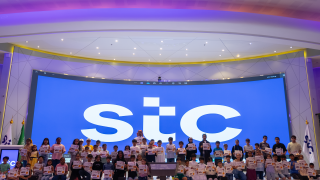|
What it lacks in size and reach, however, it makes up for in affluence, and this oil rich nation is becoming one of the most developed telecoms markets in its region.
Qatar has an extremely technology savvy population, fiercely driven by its inhabitants large disposable income. The influx of white collar expatriates in the country and the growing prominence of the professional sector, in tandem with the natural wealth of its local residents has led to favourable demographics for its telecoms industry.
According to research firm TeleGeography, Qatar’s cellular penetration has risen significantly, to over 100% since 2006, giving the market almost complete saturation. Similarly, the country’s wireless market is taking shape with incumbent operator Qatar Telecom (Qtel) driving much of the investment.
The company has already upgraded it wireless network to HSPA+ technology to accommodate the rising demand for smartphone services. TeleGeography notes Qatar’s wireless penetration rate stood at 167% by mid-2011, with just over 152,000 broadband subscribers recorded in the same period.
“Qatar has very ambitious plans for the development of its telecoms market despite the fact it has a very small population,” said Jawad Abbassi, general manager and founder at Arab Advisors. “The state and the two operators have very high FTTH aspirations and despite the fact the wireless market is approaching saturation, there is clearly further plans for broadband, internet, triple and quadruple play services. What restrains the market is its size, which is why its dominant player Qtel looks outside its homemarket, because if it doesn’t it would never become a major global player in the wider ecosystem.”
In April of this year Qtel announced a partnership with Gulf Bridge International (GBI) to land the company’s second cable in the nation, and provide onward connectivity to Europe, Africa and Asia. GBI has aggressively targeted growth in the Middle East and confirmed the second GBI cable landing in Qatar is one of ten planned landings in the Persian Gulf region.
The project is designed to address the need for high capacity, fibre-optic communication. Navneet Singh, head of global capacity and carrier services at Qtel also believes there is a considerable growth opportunity for such services, particularly in the Middle Eastern content space. In keeping with Jawad’s sentiments about Qtel developing its offerings further outside of its home market, the company has already struck partnerships with a range of content providers, including Google and Akamai, for the delivery of content across the Middle East.
“With voice revenues clearly declining, mobile data services are taking on a new importance for Qtel,” he said. “The fact that there is a huge influx of new cables in the region has also increased growth opportunity because connectivity in to the country will increase, in turn causing the cost of capacity to come down.
In the past, the problem with a country like Qatar is the price of hosting content, which is why content providers have tended to instead select cheaper exchange points such as London or Frankfurt. While Arabic content is becoming more prominent in Qatar, it is still being hosted from international locations and this needs to change.”
For the last three years, Qtel has also had to rise to the unfamiliar challenge of competing with another operator in its domestic market. While it still largely dominates telecoms in Qatar with regards to subscriber base and infrastructure ownership, the arrival of Vodafone in 2008 finally broke its monopoly position. According to TeleGeography, Vodafone Qatar has gone on to establish a 22% share in the wireless space, with its 3G network providing reach to 100% of the population.
Consultancy firm BuddeComm claims Qatar was one of the last countries in the world to liberalise its market when the state awarded a second mobile licence to Vodafone at an auction in 2007. The move was prompted by industry leaders and regulators aiming to counter Qtel’s inflated pricing tariffs.
“Despite the entrance of a new market player, Qtel still heavily dominates in terms of broadband internet, in addition to fixed telephony,” said Abbassi. “The fact is the government has a stake in both operators so competition will never be fierce. It is controlled in terms of cellular, but Vodafone Qatar could see opportunities if Qtel continues to invest outside of its home market in areas like Oman and other underserved Middle Eastern regions.”
Jawad also notes the award of the 2022 football World Cup to Qatar will aid telecoms infrastructure investment and state funds have been allocated accordingly. “Considering the influx of people expected, investment in temporary cellular towers will be imperative.”




